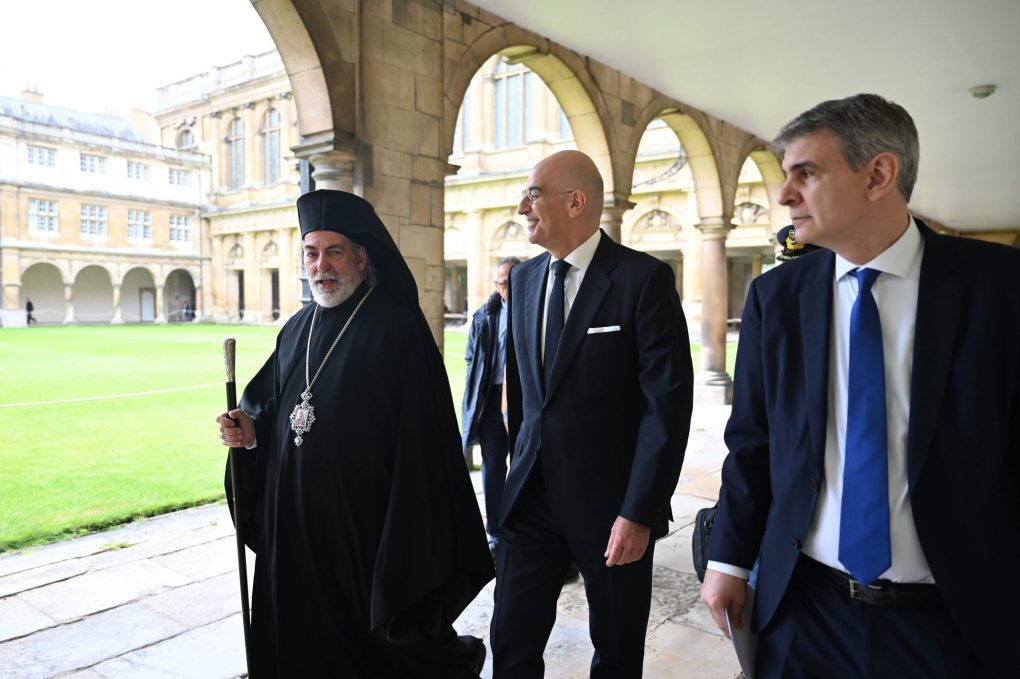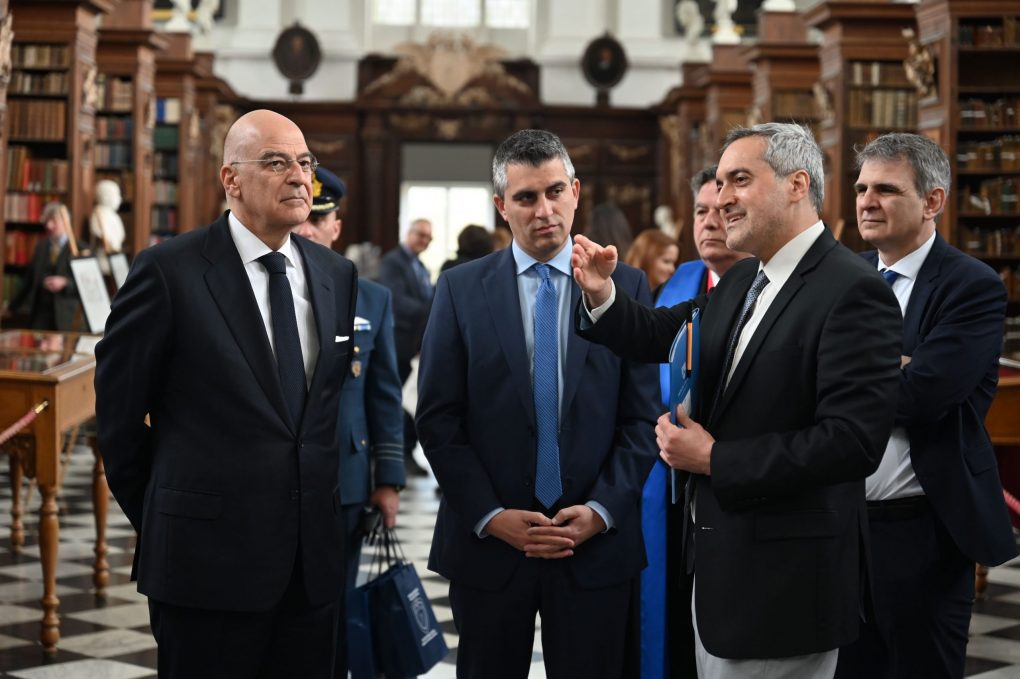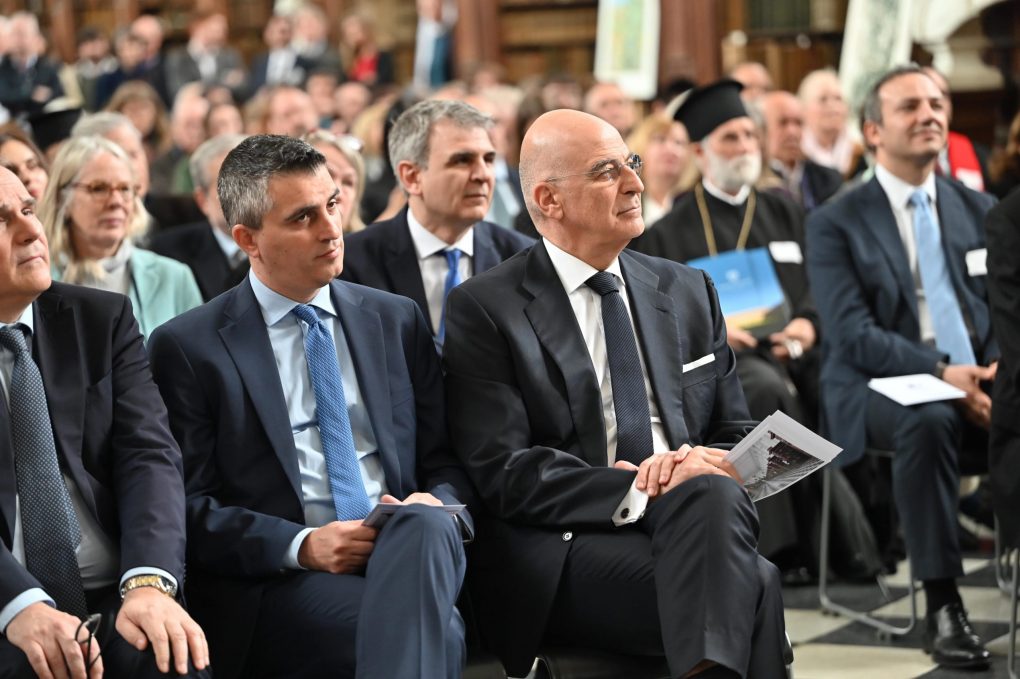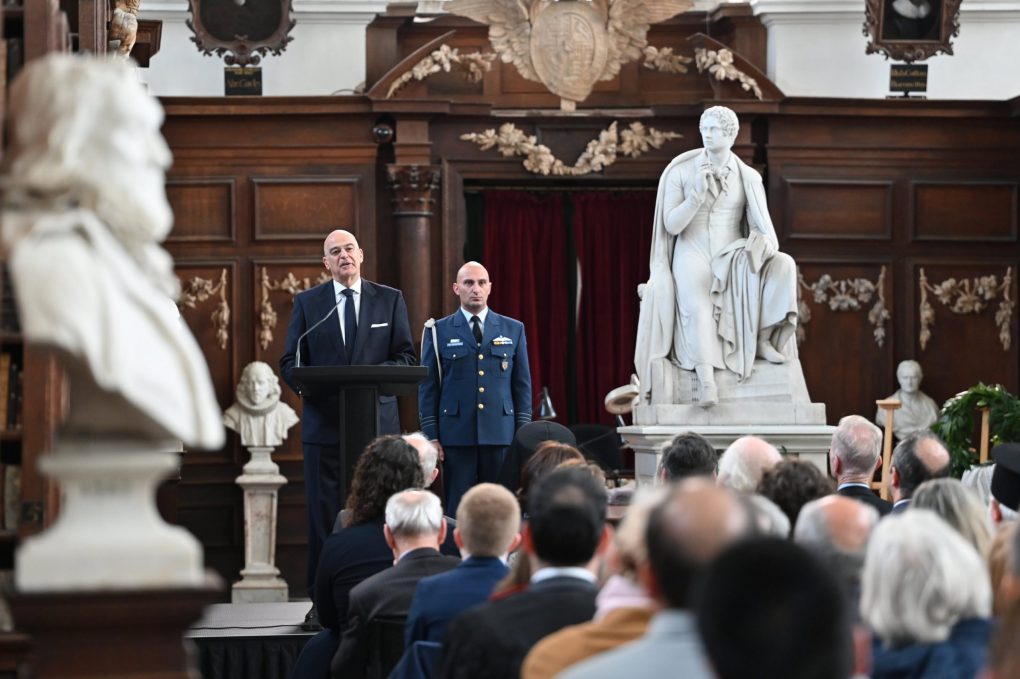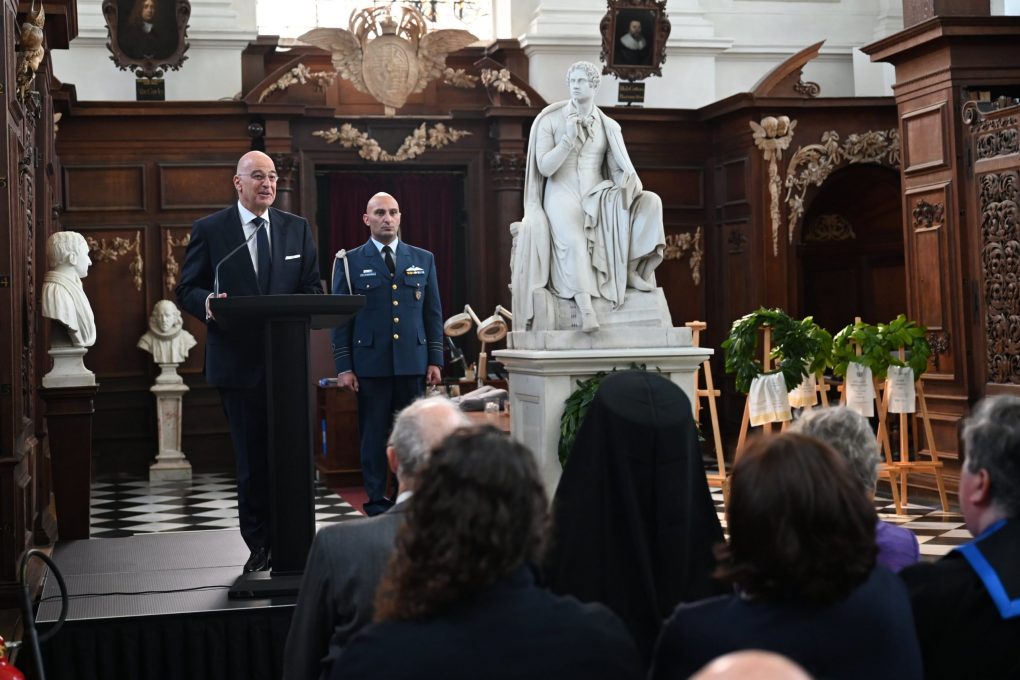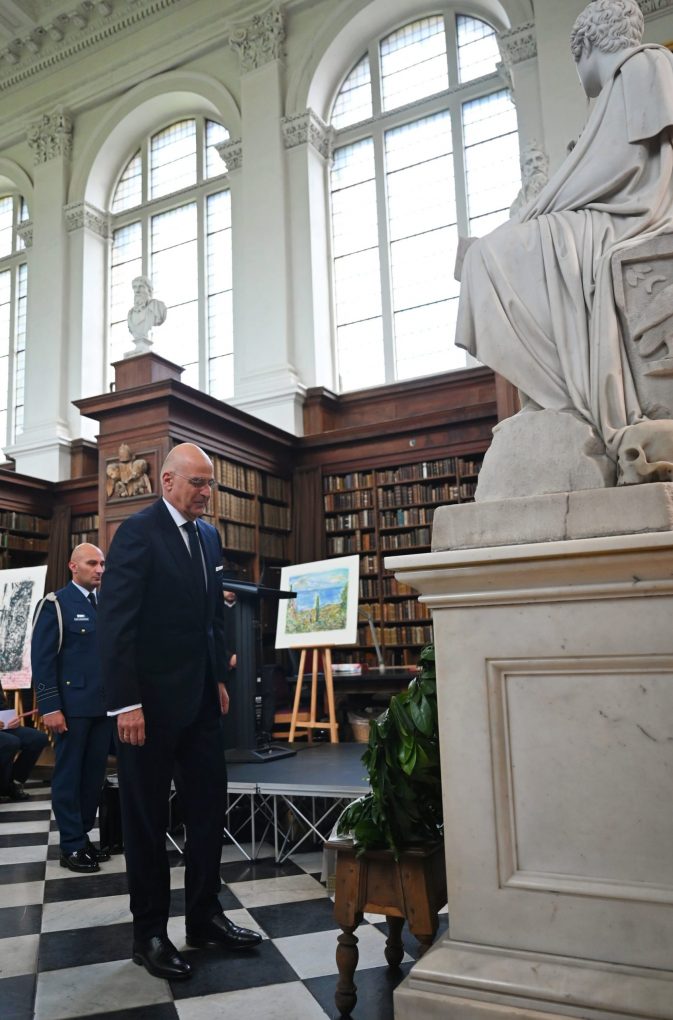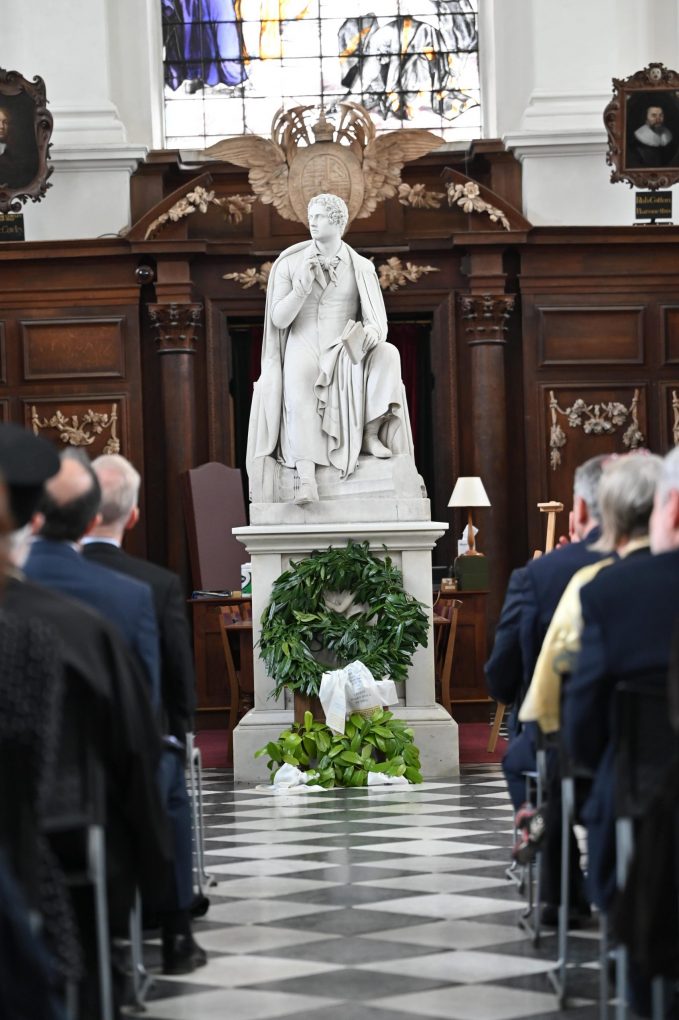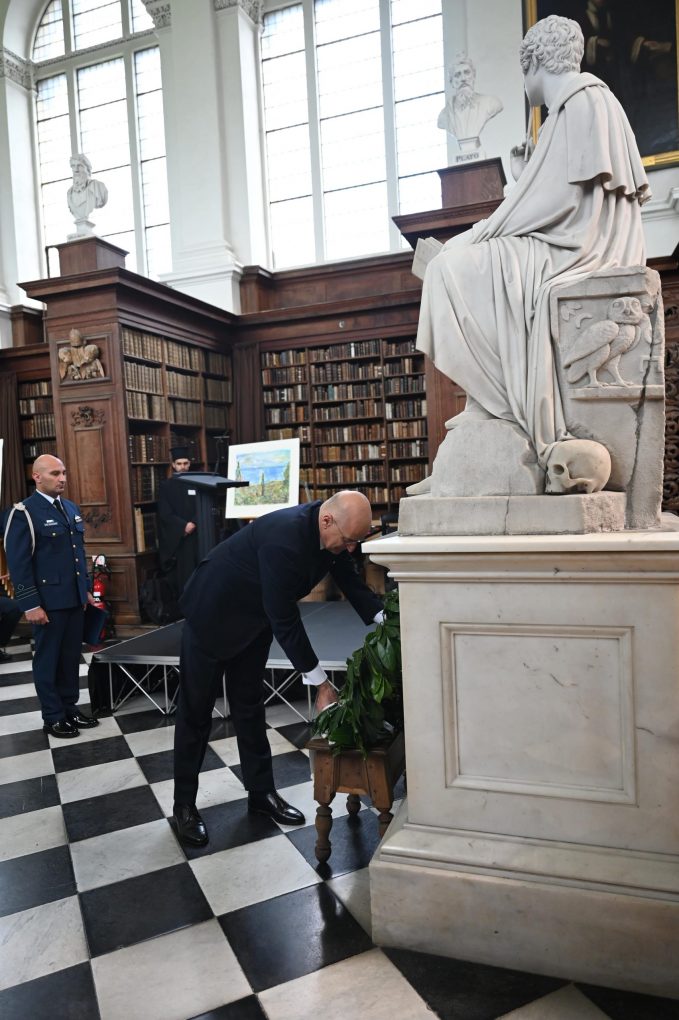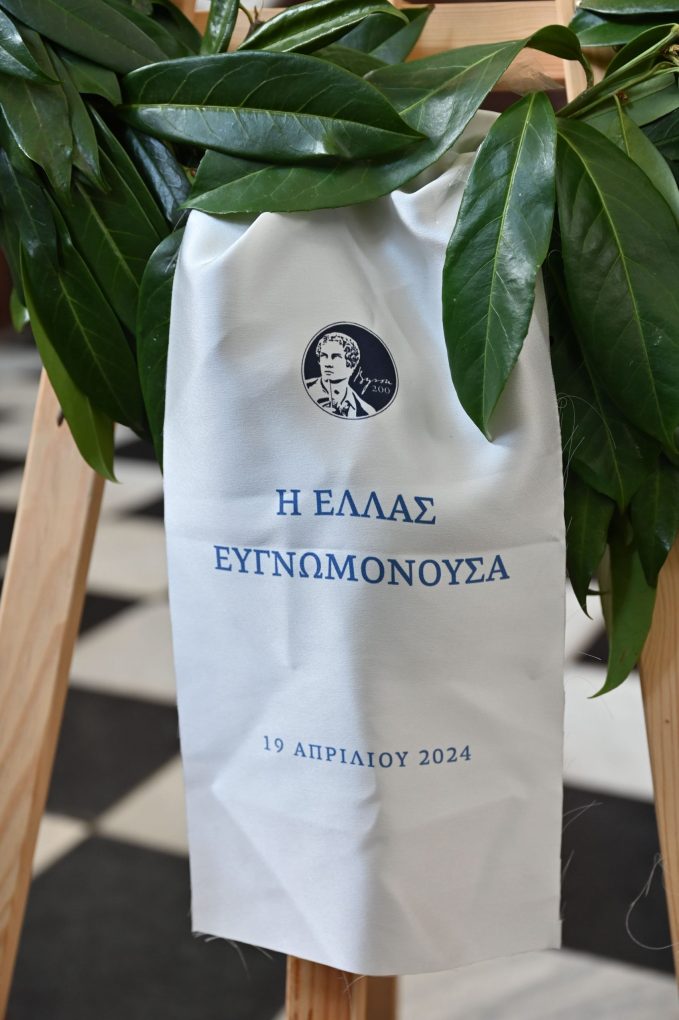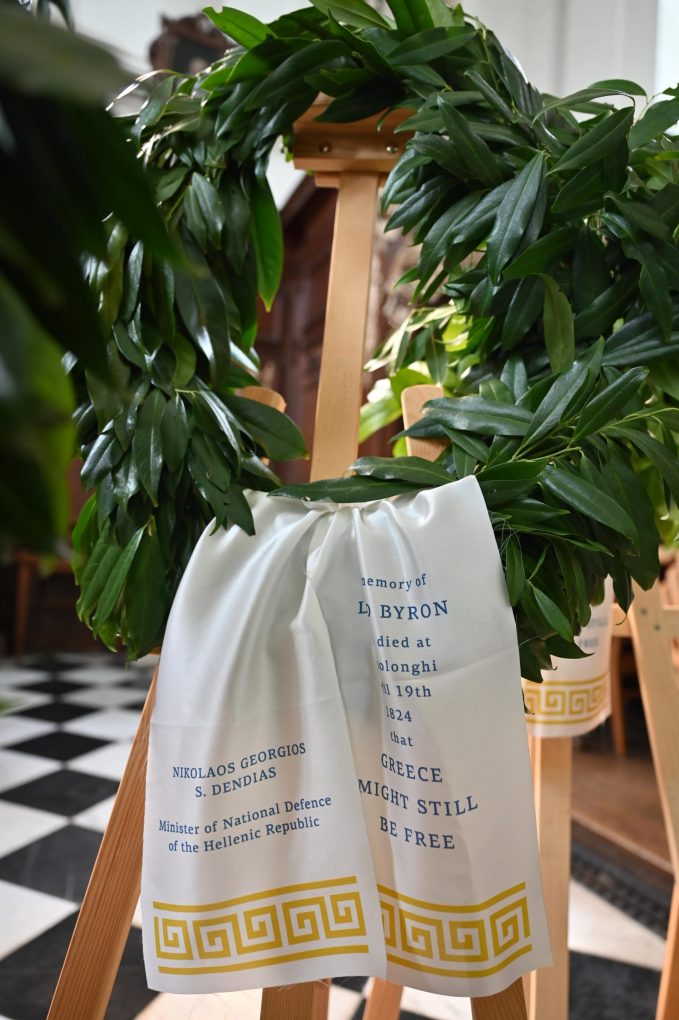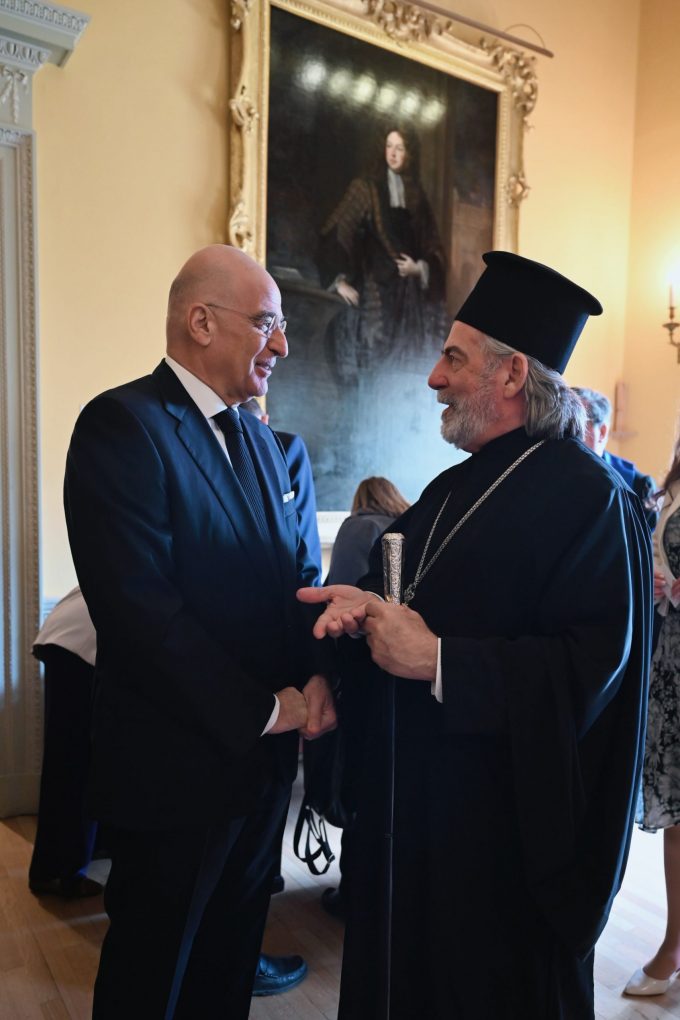On Friday, April 19, 2024, an event was held at Trinity College, University of Cambridge, for the 200th anniversary of the death of Lord Byron, in the presence of the Minister of National Defense, Nikos Dendias, and Archbishop Nikitas of Thyateira and Great Britain.
Deputy Minister of Culture Christos Dimas attended the ceremony.
Following the conclusion of the ceremony commemorating Lord Byron, who passed away in Messolonghi on April 19, 1824, the Minister of National Defense placed a wreath at his statue at Trinity College, Cambridge.
It is recalled that the Ministry of Culture has declared 2024 as the year dedicated to Lord Byron.
Greetings were delivered by a distinguished lineup of speakers, including Professor Napoleon Katsos, the Master of the College, Dame Sally Davies, the Ambassador of Greece to the United Kingdom, Ioannis Tsaousis, the Representative of the Holy City of Messolonghi, Kyriaki Mitsou, and Konstantinos Velentzas, the Representative of the Society for “Hellenism and Philhellenism.”
Deputy Minister of Culture Christos Dimas highlighted Lord Byron’s significant contributions, including his work, life, profound love for Greece, involvement in the Revolution, and his role in spreading the wave of philhellenism across Europe.
“I also stressed that he was the first to raise the issue of the abduction of the Parthenon sculptures from their rightful place and even publicly criticized Elgin,” Dimas wrote on his personal account at X.
In his address, the minister spoke about Lord Byron’s special relationship with Greece and his contribution to the struggle for Greek Independence.
Dendias concluded his greeting by reciting Lord Byron’s poem “The Isles of Greece”.
The minister in his greeting said:
“I am so happy to be here today. Allow me to express that since my school days, I’ve held a profound admiration for Lord Byron, and as I matured, my appreciation for his poetry deepened.
I knew of his relationship with Trinity College, but I also learned a story about him, the College, and his dog, Boatswain.
The story unfolds as follows: He dearly wished to have his beloved dog accompany him during his studies, but the rules of the College prohibited it. In response, he returned with a bird, a creature not specified in the prohibition.
For us Greeks, however, Lord Byron means much more. He was the most renowned philhellene, and my history professor friend often reminds me: ‘On April 19, 1824, we lost Lord Byron, yet it is evident that we gained our independence.’
I remember the lyrics from his well-known poem. “The Isles of Greece”:
“The mountains look on Marathon—
And Marathon looks on the sea;
And musing there an hour alone,
I dream’d that Greece might still be free;
For standing on the Persians’ grave,
I could not deem myself a slave.”
The poems deeply resonate with the Greek soul, and Greece always remembers and honors Lord Byron.
Thank you very much.”
